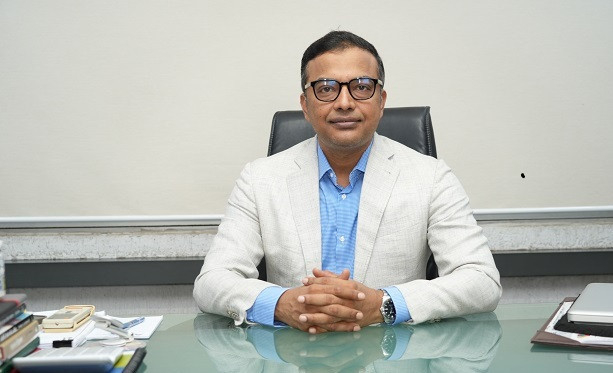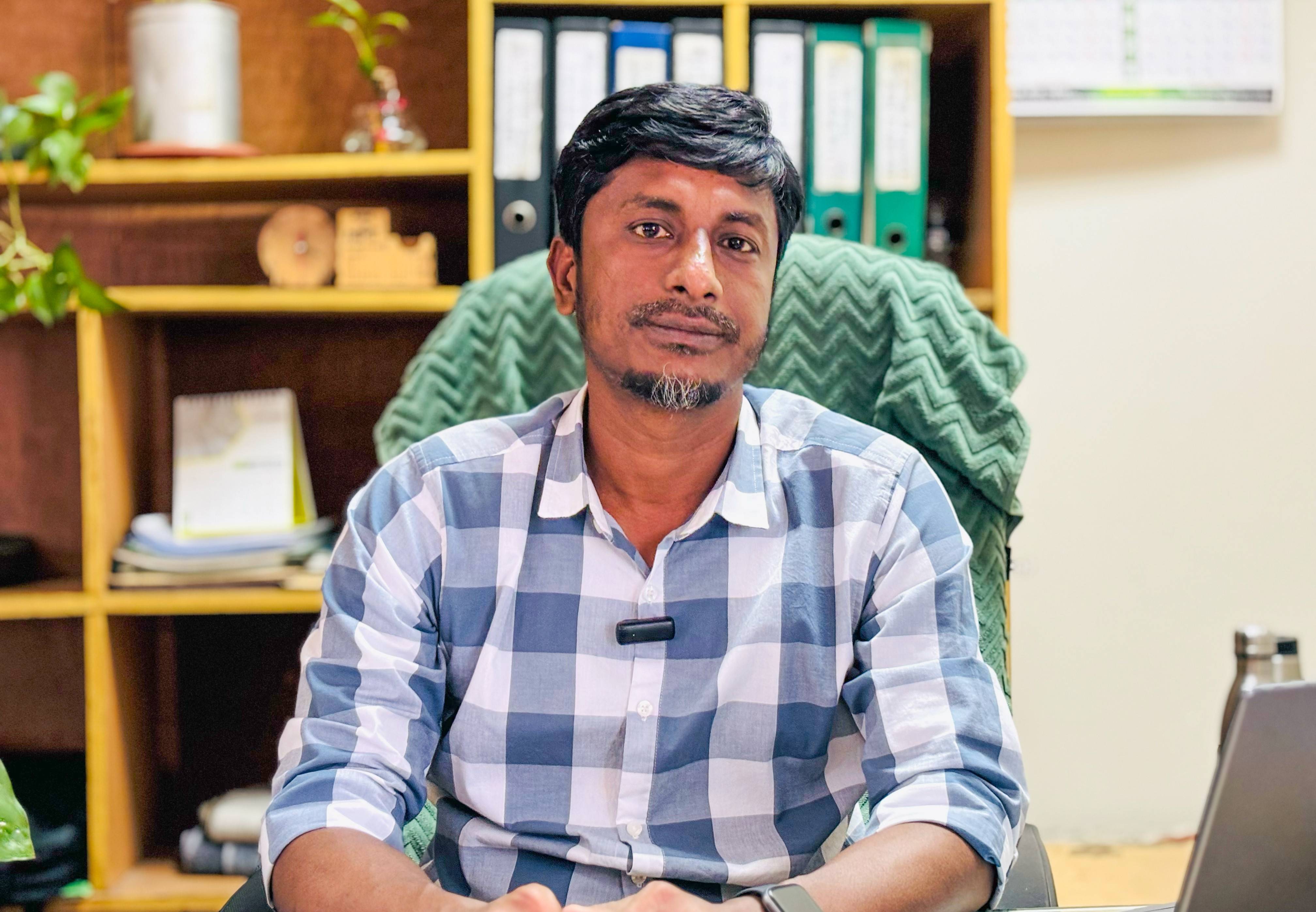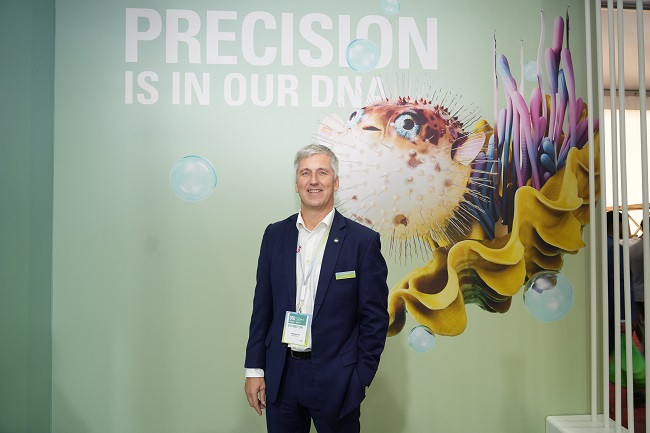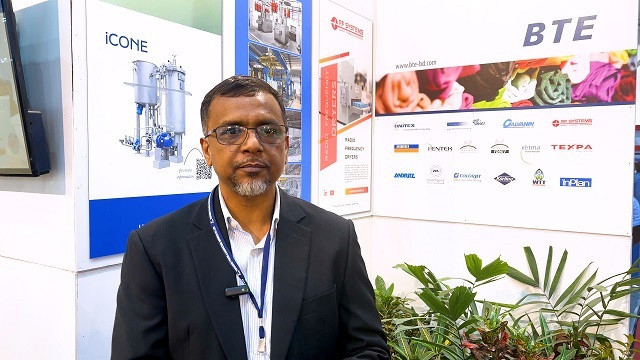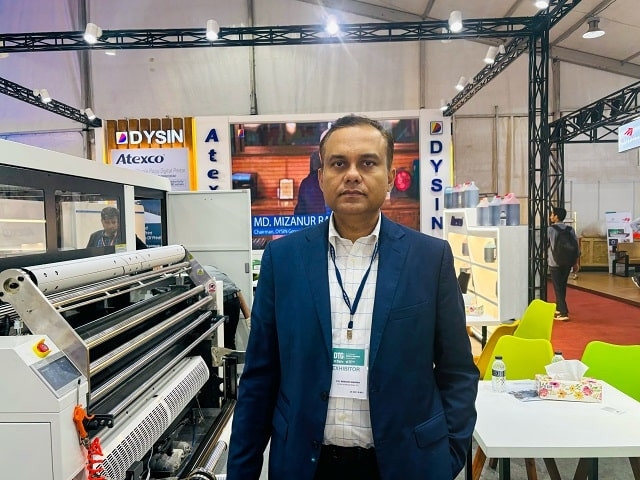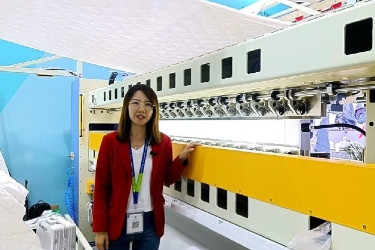APR leads viscose and lyocell market with innovation and sustainability
Mohammad Swaif Ullah
Published At: March 12, 2025Asia Pacific Rayon (APR) is a leading producer of viscose rayon and a part of the Royal Golden Eagle (RGE) Group, headquartered in Singapore. With a strong presence in Indonesia, China, Bangladesh, Pakistan, Turkey.
APR along with Sateri are the world’s largest producer of viscose and lyocell. The company is committed to sustainable fiber production, focusing on responsible sourcing, clean manufacturing, circularity, and inclusive prosperity.
At the biggest textile show, Dhaka International Textile & Garment Machinery Exhibition (DTG), Textile Today Interviewed Tapan Sannigrahi, Vice President, Marketing and Downstream Development, APR.
In this exclusive conversation, he shares insights on APR’s expansion strategies, innovations, and sustainability initiatives that are shaping the future of viscose fiber production.
Textile Today: How does APR plan to expand its market presence in regions like Bangladesh and beyond?
Tapan Sannigrahi: APR operates in Indonesia, Bangladesh, Pakistan and Turkey. While Bangladesh is one of the fastest-growing markets for us, our expansion strategy extends to all the countries where we operate. We are currently the largest supplier of viscose and lyocell in Bangladesh and see significant potential for further growth as demand for these fibers continues to rise.
Textile Today: Can you share any recent APR’s recent developments or product innovations?
Tapan Sannigrahi: We primarily produce viscose staple fiber and also customize it to meet various customer and technological requirements. In spinning, there are three main technologies: ring, MBS, and open-end. Our focus has been on customizing fiber for high-speed MBS production, ensuring maximum efficiency and productivity. Additionally, we are working on introducing a special branding for this fiber to differentiate its superior quality and performance.
Textile Today: What specific measures is APR implementing to enhance sustainability?
Tapan Sannigrahi: Sustainability is at the core of everything we do. Our operations are aligned with APR2030, which follows the UN Sustainable Development Goals (SDGs) for 2030. We emphasize four key pillars: responsible sourcing, clean manufacturing, circularity, and inclusive prosperity. Our raw materials come from sustainably managed forests, primarily in Indonesia, which are certified for responsible forestry practices.
Textile Today: How is APR supporting the global fashion industry's transition toward more sustainable materials?
Tapan Sannigrahi: We have one of the world's most advanced chemical recovery systems, which is continuously being improved to minimize environmental impact. Additionally, our energy needs are met through renewable sources, reinforcing our commitment to clean manufacturing. We supply textile manufacturers worldwide, with our sister company, Sateri, in China, specializing in Lyocell—the third generation of viscose fiber, known for being the cleanest and most sustainable MMCF.
Textile Today: Could you elaborate on the key pillars of APR's Vision 2030 sustainability agenda?
Tapan Sannigrahi: The APR2030 sustainability strategy is built across four key pillars: Climate and Nature, Clean Manufacturing, Circularity, and Inclusive Prosperity. We are committed to the principle of no-deforestation and only source wood fiber from sustainably managed plantations and forests. We will constantly strive to operate in the top quartile of viscose manufacturing industry.
In our Sustainability Report, which is publicly available on our website, we made across-the-board reductions in our energy, waste, and water consumption intensity. And recently, we also achieved compliance with the European Union Best Available Techniques (EU-BAT). Receiving this recognition motivates us to grow our collaborations with organizations in prominent markets that uphold the same values we stand for.
